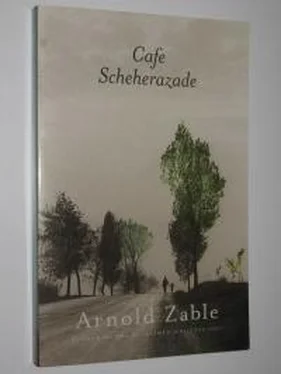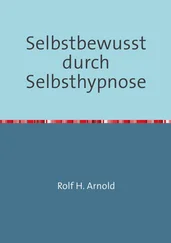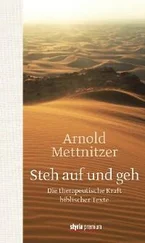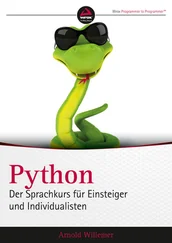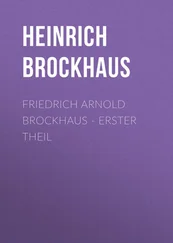Arnold Zable - Cafe Scheherazade
Здесь есть возможность читать онлайн «Arnold Zable - Cafe Scheherazade» весь текст электронной книги совершенно бесплатно (целиком полную версию без сокращений). В некоторых случаях можно слушать аудио, скачать через торрент в формате fb2 и присутствует краткое содержание. Город: Melbourne, Год выпуска: 2001, Издательство: Text Publishing Company, Жанр: Проза, на английском языке. Описание произведения, (предисловие) а так же отзывы посетителей доступны на портале библиотеки ЛибКат.
- Название:Cafe Scheherazade
- Автор:
- Издательство:Text Publishing Company
- Жанр:
- Год:2001
- Город:Melbourne
- ISBN:нет данных
- Рейтинг книги:4 / 5. Голосов: 1
-
Избранное:Добавить в избранное
- Отзывы:
-
Ваша оценка:
- 80
- 1
- 2
- 3
- 4
- 5
Cafe Scheherazade: краткое содержание, описание и аннотация
Предлагаем к чтению аннотацию, описание, краткое содержание или предисловие (зависит от того, что написал сам автор книги «Cafe Scheherazade»). Если вы не нашли необходимую информацию о книге — напишите в комментариях, мы постараемся отыскать её.
Cafe Scheherazade — читать онлайн бесплатно полную книгу (весь текст) целиком
Ниже представлен текст книги, разбитый по страницам. Система сохранения места последней прочитанной страницы, позволяет с удобством читать онлайн бесплатно книгу «Cafe Scheherazade», без необходимости каждый раз заново искать на чём Вы остановились. Поставьте закладку, и сможете в любой момент перейти на страницу, на которой закончили чтение.
Интервал:
Закладка:
45 been interrogated by the secret police. He had been beaten and severely bashed. The NKVD wanted him to write a book exposing the false ideals of the Bund. He had refused, so he remained in jail.
"Stalin was like the tsars of old. It was the same bitter wine, despite the new red bottles. Like Uncle Jonah, the fiddler, my father vanished in the labour camps of Siberia. So many vanished without trace."
"My family did survive Siberia," says Masha.
Until now, she has deferred to Avram's monologue. She has sat by his side, alert to his every word. "Compared to Avram, I led a sheltered life," she adds. "Compared to Avram, my story is trivial. Compared to those who remained in Lithuania and Poland, we spent the war years in paradise. For many years, I thought my story was not worth telling."
I glance at the glowing lamps, the ashtrays, the white serviettes laid out in readiness for the evening meal. I take in the counter display of the day's cakes: almond rings and apple-strudel, marzipan sticks and nougat delight. Behind the counter, the mirrored backdrop reflects a steady procession of customers disappearing into the St Kilda night. These are the touchstones, the props to a tale of a journey towards the Empire of the White
Bears. A journey which began on a sunlit autumn day in September
1939.
They ran in fear. They ran for their lives. Twelve-year-old
Masha, her mother, her younger sister and brother, from the
Polish city of Sosnowiec. For the first of many times they were
46 refugees, just four among the thousands who choked the single road which led out of town.
"Father had told us to run," says Masha, "and make our way to
Siedlce, a shtetl hundreds of kilometres north-east of Sosnowiec.
My parents, Josef and Yohevets Frydman, were born and raised in
Siedlce. They were also Bundists. In the 1920s they had been sent to Sosnowiec to organise trade unions. Sosnowiec was a city in the south-west, and Siedlce was to be a stepping stone to the east, to the River Bug, the new border between Russia and Poland.
"Grandfather Hershl Frydman was a rabbi, a follower of the Bialer
Hasidim. He spent his days in a shtiebele, a tiny prayer house in
Siedlce, where he studied and taught Torah. He was known as
Hershl `Mruk`, the brooder, because he did not talk very much. He was upset with his four children. All of them had forsaken their religion. All had become trade unionists and revolutionaries. One of his daughters was a communist. She rose through the ranks to become the party secretary in Siedlce. She was a passionate woman. I was impressed by her independence. I liked the straightforward way she dealt with people. I wanted to be like her.
"And my father was also a renegade. When he was a young man he would deliberately go to the Siedlce synagogue, his head bared, on Yom Kippur, the holiest day of the year, a day of fasting and repentance; and he would stand on the steps, and eat; and my bubbe would try to keep the peace.
"`Yossel, please, if you must eat, can't you go and eat
47 somewhere else,` she would plead. She was a gentle woman. She had reared twelve children of whom only four survived. In a crisis she was always there, always ready to provide shelter, a warm meal, a clean bed.
"In September 1939 we ran for Siedlce for the comfort of our bubbe and zeide. We ran until we were surrounded, in a field.
Everything was burning. Even the trees were on fire. But because we were children the German soldiers spared us. We returned to
Sosnowiec. It was the first of many miracles.
"Two weeks later we set out again, this time by train, for
Warsaw. Poland was under siege. I was afraid. And I was excited.
I had been entrusted with a mission. Father told me to take charge. Mother remained silent because her Polish was heavily accented. She could be easily identified as a Jew. I was to do the talking. I loved the responsibility. I felt like an adult.
"In Warsaw we boarded a horse-drawn cart and continued our journey east. I was very proud of myself when we arrived in
Siedlce. I had accomplished my mission.
"Father joined us one month later. He walked all the way from
Sosnowiec. He walked by night, and hid by day. He walked in a hurry. He wanted only to move east, away from the advancing terror. After he arrived safely in Siedlce, he did not stop. He took the four of us under his wing and we set out for the east, for the safety of the Soviet empire.
"On New Year's Eve, we arrived at the border, on the banks of the
River Bug. The water was frozen over. On the first day of 1940, we walked across the ice into Russia. In broad daylight.
48
The entire family. I will never forget it. I still dream about it. The sun was shining. The snow was high. It dripped from the skies. It hung from the trees. It clung to our clothes, while from afar there drifted the voices of Russian soldiers on patrol.
"They were singing a folk song. I can still hear it now, the harmony, the voices floating in the air. Anyone who has lived in
Russia knows this song." And Masha finds her way back to the words, which she recites haltingly, without the melody, in fragments of barely remembered verse:
"The apple and pear trees have blossomed;
The mist on the river has gone.
Katyusha has left for the riverbank, To sing of the soldier she loves.
Oh heart-felt song of my longing, Fly far on the rays of the sun.
Katyusha will cherish her precious love
Until her lover from war shall return."
They walked for their lives. They walked with rucksacks on their backs. They walked until Masha's ten-year-old brother, Lonka, refused to go on. They stood in no man's land, between contending empires. The sun shone, the snow twinkled, the strains of a
Russian folk song wafted upon a breeze.
Lonka sat on the ice and did not move. His parents pleaded. They threatened. They tugged at his arms. They were visible targets, fully exposed. They begged him, with mounting panic, 49 until at last he allowed them to drag him back onto his feet.
They walked on through a wonderland engulfed in mist. They walked to the beat of their hearts, towards the beckoning east. They moved as fast as the ice would allow them. When they finally reached the opposite bank, they kissed the frozen earth. And when they came upon the patrol of Red Army soldiers, Josef Frydman bent down and kissed the commander's feet.
"We settled in the border town of Lutzk," Masha continues. "But our freedom was short-lived. The Soviet police came to our home, in the middle of the night. They battered the doors with batons and rifle butts. `_Bistro! _Bistro!` they screamed. `_Bistro!
_Bistro! You have twenty minutes to pack. _Bistro! _Bistro!`"
"_Bistro is a Russian word which was adapted by the French," interrupts Avram. Such details fascinate him. "When the victorious Russians came to Paris after the defeat of Napoleon, they would walk into restaurants and demand: `_Bistro! _Bistro!
Quickly! Quickly! We want to eat. We are hungry; and we are busy.
So make it quick.` Because of this, bistro came to mean a place for a snack. Not like our Scheherazade where you can sit all afternoon over one cup of coffee."
"Avramel, let me tell my story," insists Masha. "As I was saying, we had to be quick. We grabbed what we could. Clothes. Photos.
Mementos. We descended into the street. `_Bistro! _Bistro!` We marched through the darkness, at gunpoint. We were `unwanted elements`, nobodies. We were directed
50 into cattle trucks. Fifty or so to a carriage. It all happened so quickly. We did not know where we were being taken. We had lost control over our fate."
This is a tale of maps, both old and new. Maps with shifting borders, obsolete before the ink could dry. Maps that created bands of nomads, stateless refugees. Maps criss-crossed by trains shunting their cargoes of uprooted wanderers thousands of kilometres east, on a nine-week journey, over glacial plains and snow-capped ranges, through white nights and broken days, an interminable journey that came to an abrupt halt at a remote station.
Читать дальшеИнтервал:
Закладка:
Похожие книги на «Cafe Scheherazade»
Представляем Вашему вниманию похожие книги на «Cafe Scheherazade» списком для выбора. Мы отобрали схожую по названию и смыслу литературу в надежде предоставить читателям больше вариантов отыскать новые, интересные, ещё непрочитанные произведения.
Обсуждение, отзывы о книге «Cafe Scheherazade» и просто собственные мнения читателей. Оставьте ваши комментарии, напишите, что Вы думаете о произведении, его смысле или главных героях. Укажите что конкретно понравилось, а что нет, и почему Вы так считаете.
